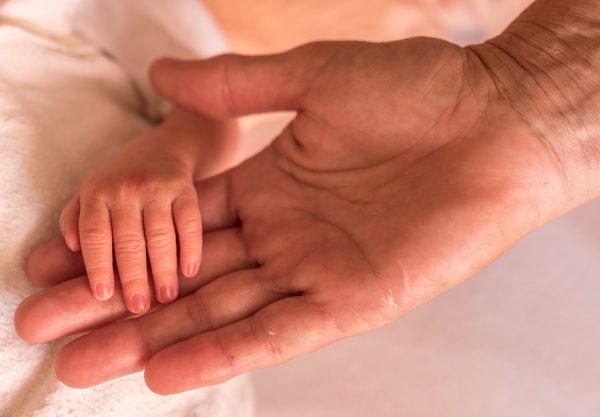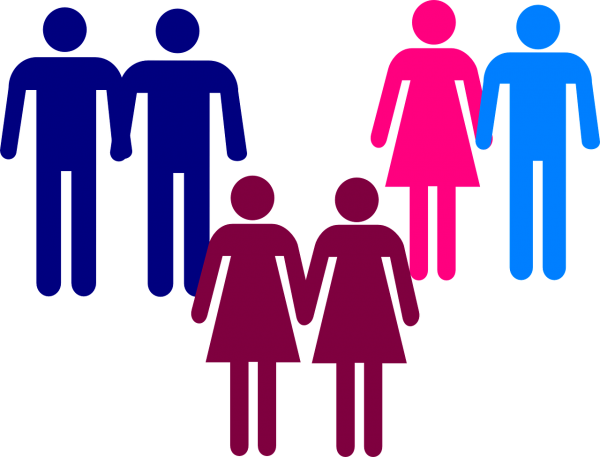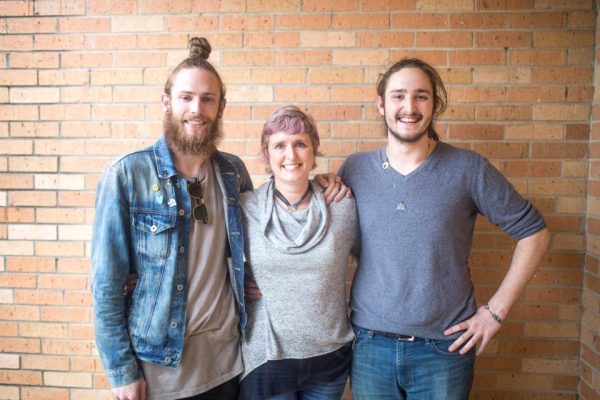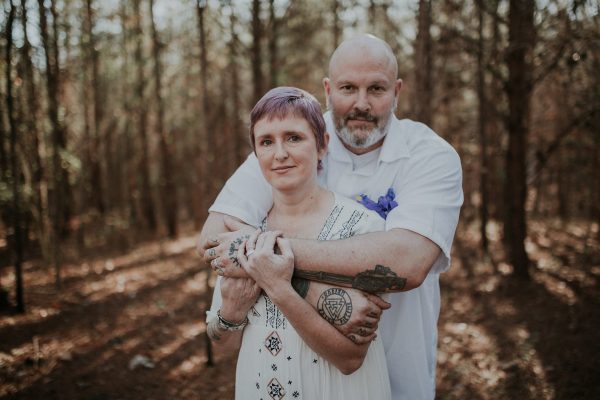Growing Generations. That’s what they do.
They make families. They turn siblings into aunts and uncles. They create grandparents. They help HIV-positive men become fathers, with their own sperm. They allow gay couples to experience parenthood.
Growing Generations is a surrogacy and egg donation agency passionately dedicated to creating life.
Their motto — “We Deliver: Passion. Dreams. Possibility.”
The agency was founded in 1996 in Los Angeles, specifically to serve the gay and lesbian community, however, now the families they serve are fairly balanced between heterosexual and gay, said Erica Benda, senior client development specialist. Benda is based in the Wheeling office, which has about 21 staff members. There are about 35 employees companywide.
Why Wheeling? A surrogate, who happened to be based in Wheeling, had gone through the program. She offered to become involved, and the company took her up on it. She was processing surrogate applications, and the program kept growing. The Wheeling office was established.
AN EXPERIENCE TO TREASURE
The “GG” staffers help parents and surrogates through the journey, noted Lacey Locke, senior case specialist, also with the Wheeling office. She takes parents through the entire journey, from start to finish — everything from connecting them to the legal team, establishing them at their medical facility to making sure the surrogate has insurance.
“What I say is, ‘I’m going to hold your hand through this journey; let me do the behind-the-scenes work and guide you through this.’ Because we want to make it an experience they treasure,” Locke said.

MAKING FAMILIES
Many couples or single men — gay and straight — seek out GG’s help in finding a surrogate to carry their child.
Some people come to Growing Generations for an egg, which the mom will carry herself. They have a site of about 100 egg donors.
HIV-Positive men come to GG so they can father a child. The HART (HIV Assisted Reproductive Technologies) process, which started in 2006, “allows HIV-positive men to father children using their own sperm. So it’s a sperm washing process that happens. We have many surrogates who are open to that program. We have a lot of surrogates who are happy to do it. There’s been no transmission to a surrogate or a child using the HART program. We have well over 50 babies, probably close to about the 70 mark, of children born to the HART program,” Benda said.
So, whether you are looking for a surrogate (or have the desire to be a surrogate), need an egg or are HIV-positive and want to father your own child, GG is here, helping people around the world in more than 60 countries.
• Like these international parents: “The husband was in a serious pushbike accident about 10 years ago. He’s in a wheelchair, and his speech is a little difficult to understand but his wife ‘translates’ for him. They are just lovely, and both have a wonderful sense of humor. They had been through several rounds of IVF [in vitro fertilization]. With the help of an egg donor, sperm donor and surrogate, they now have one son with another child on the way,” Benda said.
• Like this married lesbian couple. “They’ve been together for 13 years and have tried private adoption and IVF, and neither has worked. With the private adoption, they literally went to the point of a flight away from getting the child only to have it fall through. They ended up with donated embryo from the fertility clinic, and now have a son.”
• Like the mother who was diagnosed with cancer five years ago. “They did a retrieval and embryo freeze before she started treatment. She had a double mastectomy and reconstruction along with a year of chemo. The hope was for her to carry, but due to the medications, this was not possible. They are now matched with a surrogate and very eager to begin their process,” Benda said.
• Like Lisa Whippler. You’ll meet her later in the story.
• Like the single, gay man from England who went through the HART program, and now has two boys, ages 3 and 6, thanks to GG.
“I guess the bigger picture is he is now part of our family,” Locke said. “He comes to Wheeling to visit. He brings his family to visit, he just keeps in touch. He sends holiday cards.”
“It’s so special because he thought this wasn’t going to be available to him. He always had this dream of having a son … and didn’t think there was a way for this to happen,” Benda said. “So when he found Growing Generations — he’s a very high-powered businessman so obviously he was very skeptical. But to listen to him to be awestruck, ‘Oh my gosh, I get to have a family, I get to do this and this gets to happen for me,’ and he is so incredibly grateful. … For him, it’s so important that his children understand their story and know where they come from, and literally, it took this village of people that were invested in them before they were born to make this happen. And it’s not lost on him all of these years. He’s still in regular contact with our vice president and, literally, they call her Auntie Heidi.
“Lacey got him through his surrogacy journey; I helped him find him his egg donor,” Benda said.
“We do have a lot of families who return. We have a lot of families who have three or four children with us,” Locke said. “An interesting piece is, if they’re returning, they’ll try to return with the same surrogate. They already have a relationship with her and medically everything’s OK, they like to work together again. A lot of time they are families now … their families are families.”

EXPENSIVE? PRICELESS.
To use a surrogate to have a child, it can easily cost more than $100,000, Benda said. However, there is an organization called Path2Parenthood that offers grants and financing.
And then there is generosity among families.
Benda shared the story of one family that was going to use the surrogacy program, but got pregnant on their own. Because they had some funds set aside, they decided to donate the money to help another family.
‘We even have families who have created embryos, but their family is complete … they’ll donate to other families,” Locke said.
Compensation for a surrogate is around $40,000-$42,000 for a first-time surrogate to about $50,000-$55,000 for an experienced surrogate. A woman must devote about 15-20 months to the entire process.
“A surrogate goes through a lot,” Benda said. “Most people have no real idea what a commitment being a surrogate is. They think it is as easy as doing an embryo transfer, and nine months later you deliver a baby for the happy family. The reality is, the journey is full of testing, doctor appointments, injections, hormones and having your entire life and body put under a microscope … and that is all before you even try to become pregnant.
“Once the surrogates finally get to embryo transfer, there is the possibility of negative pregnancy tests, miscarriages and failure — only to start the process over again. Once pregnant, the sheer responsibility of caring for another person’s baby while maintaining their own families is enormous. Somehow these women do it and do so with commitment and grace!”
Egg donors receive about $8,000 to $10,000, for their two to three months of service.
About 1 percent of the people who apply to be surrogates and egg donors are accepted into the program. It’s a very stringent process, and it can’t be “just about the money,” Benda said.
Priceless? The reviews on the website speak to that.
• “Thank you, for my new family. The twins are beautiful and perfect in every way. After my parents, who gave me life, you have given me the most important gift I will ever receive. I will be forever grateful. What joy this is … like nothing I have ever known! Yours is the work of angels! Much love.” — Tim, parent
• “Thank you for this incredible opportunity you’ve given me! Being a surrogate has been one of the most fulfilling things in my life and I cannot imagine doing any of this without you. Your support has been incredible and it means the world to me. I could never thank you enough!” — Christina S., surrogate
• “Growing Generations was by our side throughout the process of becoming parents — on the good — as well as the bad days. Now, we’re blessed with the two most beautiful girls in the world. Thank you, GG for helping make our dreams come true.” — Eric and Doug, San Francisco, parents to twin daughters
There are photos all around the Wheeling GG office of happy families. They get Christmas cards and flowers and gifts, all showing gratitude for how they’ve changed lives.
GG IN THE COMMUNITY
Benda noted that Growing Generations employees are very active in the community, and hope to expand their service roles — to give back and also to bring attention to the agency.
“People don’t really know what we do and that it exists here,” Benda said.
“One of our staff members had a son who battled, and unfortunately lost, his fight against [pediatric cancer.] We started a kickball tournament to raise awareness and to really rally together.”
Last year, all the proceeds from the tournament went to a local family.
GG staffers also serve on the CASA board (Court Appointed Special Advocates), and they’ve participated in collections for the homeless shelter and the YWCA.
The Los Angeles staff is very involved with the Los Angeles Youth Network, an agency that works with abused, neglected and homeless adolescents.
They also support LGBTQ families. Erica Horton, president of GG, is chair of the board of directors of the Family Equality Council.
“Their whole thing is to ensure that all families are respected, loved and celebrated,” Benda noted.
“We also want to take an active role in OV Pride,” Benda said. “I’m so proud of what it is that they’re doing because I do think it takes a really large amount of courage and bravery to stand out in that way and be proud like that. I think it’s incredible. I look forward to seeing what they do each year. … I’d love to see ways we could work with them.”
MORE GG INSIGHT: MEET LISA
Lisa Whippler speaks “from a place of true understanding” when doing her job as a senior surrogate admissions specialist with Growing Generations. A former Marine, she is a three-time surrogate and a two-time egg donor. She is the mother of two, John, 25, and Zachary, 23, and has been married to her partner John for 26 years. Whippler works remotely from her Georgia home.

The following is a Q&A with Lisa, which offers tremendous insight into GG’s work and her personal experiences.
What led you to decide to be an egg donor and a surrogate?
In 1995, my husband was an active-duty Marine, and we were relocated to California. I purchased a Mothers Magazine to see if I could connect with other moms in the area. There was an ad needing surrogate mothers and donors. I never knew there was such a need. It sparked a conversation with my husband and me what it would be like for us if I had not been able to have our sons. I decided to call the agency to get more information. It seemed amazing to be able to help people become parents. That led to a surrogacy in 1996, two egg donations in 1997, another surrogacy in 1998 and my final one in 2002. It was a community of women and families [that] I was and am still so happy to be a part of.
What was the difference in your experience between being an egg donor and a surrogate?
Surrogacy is more personal and rewarding for me. You get to follow it to the end and see what you have helped create. However, it also is a very long commitment and affects your entire family. Egg donation is gratifying knowing you are still contributing to making families without the longer commitment.
What was it about the experience that made you want to do it again?
My first surrogacy was extremely rewarding. I thought I was going into this to help create a family, but I got so much out of it. The mom was such strong woman and watching her go through the process with grace taught me a lot about myself. In the delivery room, the father was standing by my head to be respectful. My husband reached across my body to the dad and said, “Come down here Dad, you only get one chance to see your son be born.” When the mom held her son to her chest for the first time, I felt It was a moment that will forever be etched in my heart and soul. That is the spirit of surrogacy.
Can you describe the connection you have with the babies and their families? Having two sons of your own, is it difficult to part with the babies?
The connection is to the future parents, not to the baby. The whole point of being a surrogate is to help create a family. When you get to the end and fulfill that dream you feel complete. Watching a parent hold their baby for the first time is like nothing I can describe. There is no need to feel anything other than completion and happiness for what you have accomplished. We are still in contact with the first family we delivered for. The other couples I lost contact with a few years later as our lives naturally moved on. I feel honored that all three families allowed me to be a part of their story.
Is it the experience you’ve had with your own surrogacy that made you want to work for GG?
I started working in surrogacy in 1996. At that time there were no support groups/systems in place for surrogacy, and the Internet was rather new for chat groups. I created an online group for surrogates. The agency asked me to run a group exclusively for their surrogates and that started my now 22-year-long career! In 2010 I stepped back from surrogacy for a year to launch our non-profit dog rescue “Semper Fi Rescue.” In 2011, Stuart Bell [senior partner and co-owner of GG] approached me about working in surrogacy again, and after reading their stories and website, I was thrilled and renewed to be a part of surrogacy again. It was the best decision I have ever made.
As a senior surrogate admissions specialist, what does your job entail?
My job at Growing Generations currently is to oversee the Surrogate Admissions Department as team lead. The team comes to me with any questions or concerns about incoming and current surrogates. In addition, making sure we are all following our steps of service and motto https://www.growinggenerations.com/about-us/values-philosophy/
is very important to me. I coach the individual members of my team to be sure they all are feeling empowered and motivated as well as nurturing their ideas and passions. Finally, I have the privilege of being the lead of the matching team that puts all these amazing people together.
How has your experience as an egg donor and surrogate helped you with your job?
I think my previous experiences as a surrogate and donor help me tremendously in connecting on a personal level with all our surrogates. I am speaking from a place of true understanding when I explain the process and potential things they need to consider. I also have a very real desire to make sure that everyone has an amazing journey, just as I would want to have.

Tell me about GG — what it means to you and how you feel about the work the company does.
In order to really understand my journey to GG, I have to tell a not-so-flattering story. In 1996 when I was a surrogate for the first time, I was in a support group meeting in which gay parenting came up. At the time, I was 24 and a military wife (also former Marine myself). I came from a very small town, and the idea of a child having two dads was foreign to me. I was not interested at all in helping a gay couple and even went so far as to say (typing this embarrasses me) that my husband had considered donating sperm but he didn’t want it to go to a lesbian couple!! I know, bear with us, we grow up a lot over the next few years and our story comes full circle. By the time I was a surrogate the second time, my world had expanded, my experiences broadened and living in California helped me to be exposed to all kinds of family types. I would have gladly helped a gay couple for my third journey but was chosen by a different parent then. I would like to say that the changes in my personal growth since becoming part of the Growing Generations family have been infinite. Our credo and motto I try to embody in my everyday life. GG has helped me through a recent life change in which my husband of 26 years (retired Marine Corps Gunnery Sergeant) has come out as transgender. The last 18 months have been a struggle but the GG family has helped us in so many ways to keep our family together.
Any other thoughts about surrogacy and egg donation?
I believe if the technology existed years ago to do surrogacy and egg donation it would be more prevalent than today. My reasoning is simple: Community. People used to feel it was a responsibility to help others. When a woman had a baby, the town women would come and bring her meals for weeks, teach her how to nurse, support her. There was a sense of community in everything they did. Of course, there would be the gay family factor but the idea of community is quite lost in most areas of our society. We are too busy with our own lives and own needs. For those women who find themselves not too busy to be a part of something amazing, surrogacy and egg donation can be a way you can contribute not only to a family but to a legacy!
• After nearly 38 years as reporter, bureau chief, lifestyles editor and managing editor at The Times Leader, and design editor at The Intelligencer and Wheeling News-Register, Phyllis Sigal has joined Weelunk as managing editor. She lives in Wheeling with her husband Bruce Wheeler. Along with their two children, son-in-law and two grandchildren, food, wine, travel, theater and music are close to their hearts.


